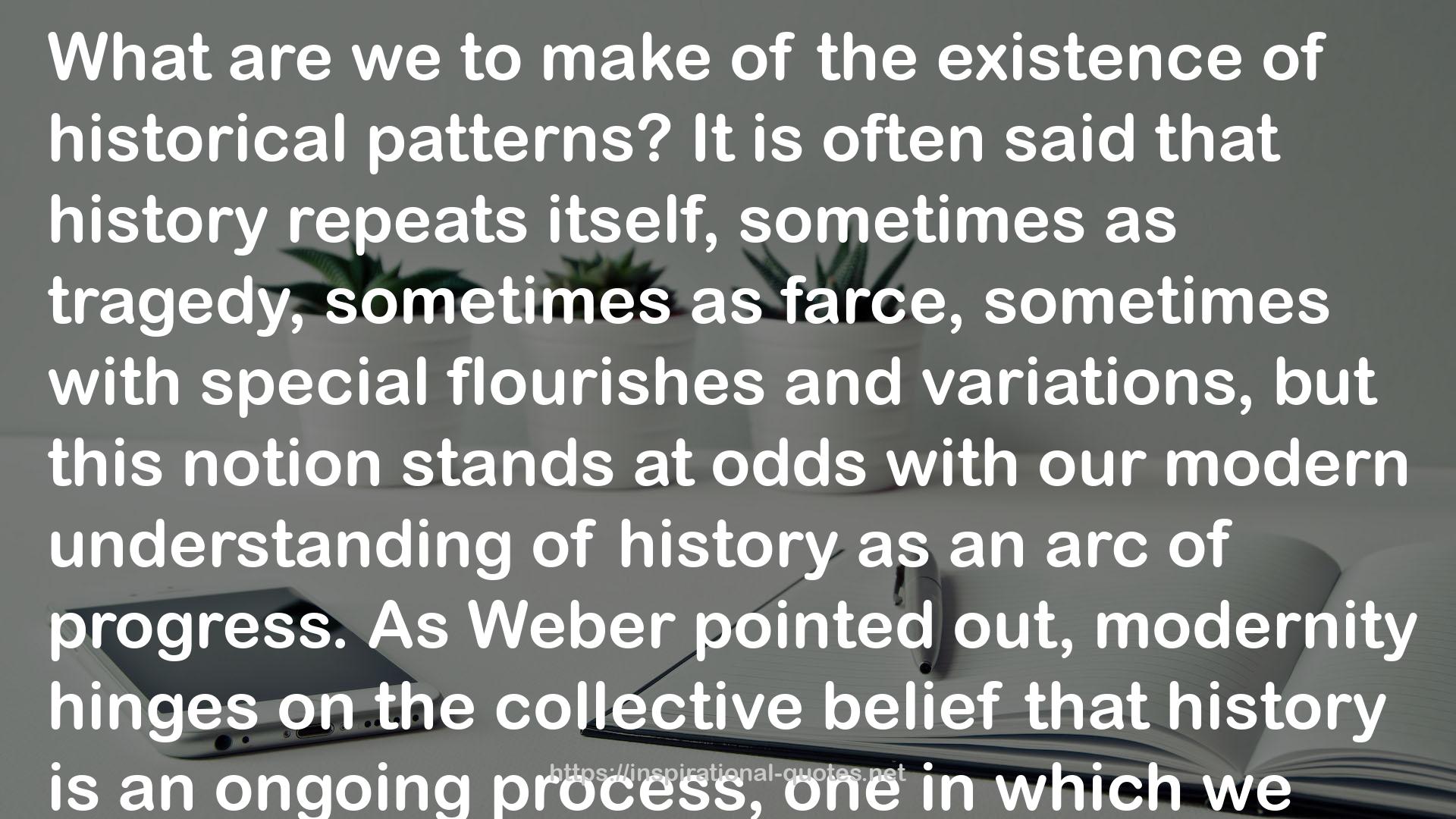" What are we to make of the existence of historical patterns? It is often said that history repeats itself, sometimes as tragedy, sometimes as farce, sometimes with special flourishes and variations, but this notion stands at odds with our modern understanding of history as an arc of progress. As Weber pointed out, modernity hinges on the collective belief that history is an ongoing process, one in which we steadily increase our knowledge and technical mastery of the world. Unlike the ancient Hebrews and Greeks, who believed that history was cyclical, the modern standpoint is that time is going somewhere, that we are gaining knowledge and understanding of the world, that our inventions and discoveries build on one another in a cumulative fashion. But then why do the same problems—and even the same metaphors—keep appearing century after century in new form? More specifically, how is it that the computer metaphor—an analogy that was expressly designed to avoid the notion of a metaphysical soul—has returned to us these ancient religious ideas about physical transcendence and the disembodied spirit? "
― Meghan O'Gieblyn , God, Human, Animal, Machine: Technology, Metaphor, and the Search for Meaning
